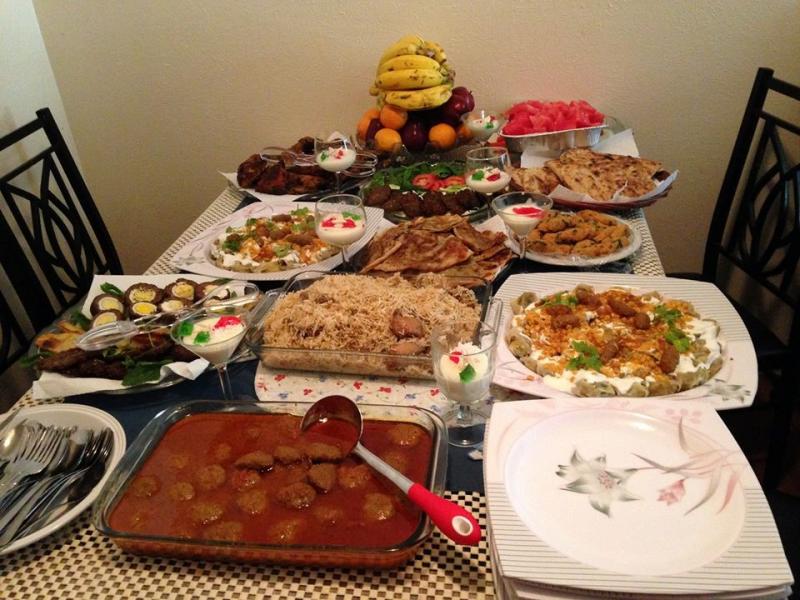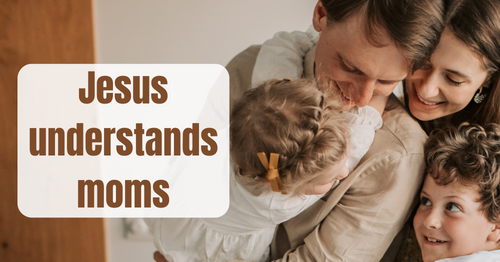
Sitting at the Table: Connecting Christians and Muslims
Today I share this space with Nita Thomason–friend, teacher and accomplished writer. We want to give you an account of the growing friendships we have been cultivating with a group of women both similar and different from ourselves, with the hope that you might connect with your neighbors, wherever in the world you live.
Many Christians have negative attitudes toward Muslims. The violent actions of a few, as well as economic pressure, have led to these attitudes in Europe and elsewhere in the world. Americans have negative sentiments as well. Pew Research documented these in 2014*. The months of bitter dialogue in the U.S. during and after the 2016 presidential election have likely made these feelings more extreme. Yet the majority of Americans do not know even one Muslim. I suspect this is true in many other countries as well.
Such attitudes stand at odds with the core Christian values of loving one's neighbor and fulfilling the Great Commission.
A short time after the San Bernardino shooting shocked the U.S., one of my former students contacted me (Nita) through email. She remembered discussions from a class I teach at an area community college about building understanding and respect among people of various perspectives. My student, Mariam, expressed concern about the growing bitterness and the misconceptions in the national dialogue about Muslims. She wanted my friends to get to know her friends, in order to promote understanding between us. Mariam’s idea has grown into a monthly lunch that has built bridges between the Muslims and Christians in our group.
Shared Food and Friendship
Our group of devout Christian and Muslim women meets every month. The hostess welcomes our multi-ethnic, multi-generational group to a table in her home heaped with food. Sometimes we enjoy biryani; other times we sample American soups or eat a Turkish stew with mint- and dill-spiked yogurt. Together we laugh and talk while friendships flourish.
Most of the Muslim women in our group, though American citizens, have roots in Pakistan or India. Some have lived in the United States for over twenty years, while several of the younger women have lived in the U.S. all their lives. I (Beth) have to admit that even though I had lived in the Middle East for twelve years, I had no idea of the diversity of beliefs and practices of women in the Muslim community worldwide. Our precious new friends have college degrees or attend college. They each wear a head covering out of their own desire to be modest. One friend often covers all but her eyes, though her husband and children have asked her to cover less in today’s contentious environment. They each choose their personal degree of modesty.
Shared Experiences and Faith
Though the contrasting dress of our two groups of women was an obvious difference, at our first luncheon at Nita’s house, I noticed how much we had in common with our new Muslim friends. Some of the younger women got into a discussion about gluten-free eating. We shared recipes. One American who joined our group commented, “We all cry at movies.” Many of the women expressed concern about their children’s schooling and a desire that they excel. All of us shared a concern to pass our faith and values onto our children.
Since our Indian-American and Pakistani American friends had gotten their ideas of Americans from television and a broader slice of American culture, they, too, expressed surprise at our perspective on marriage. We shared several passages from the Bible about the Christian marriage relationship such as 1 Peter 3 and Ephesians 5. These verses delighted them. We found much common ground in our views of the marriage relationship. Mariam said, “The women’s role in the household is very similar to what we have been taught.”
We also discuss our faiths, a discussion Muslims willingly have. Each month when we gather, the hostess selects a topic for discussion. Initially, we explored stories from the Bible and the Quran about the patriarchs and prophets. Some of us Christians knew very little about the content of the Quran and Hadith. The Muslims’ knowledge of the Bible was equally limited. As we review stories from our holy books, we realized that we both have some similar information and incidents that include a number of the prophets. We have discovered differences.
Exploring Differences
Of course, we share the patriarch Abraham. The Muslims believe Ishmael was offered as the sacrifice instead of Isaac, though the Quran does not specify which son. Because Muslims believe that none of the prophets can sin, their analyses of stories differ from ours. For example, they believe when Jonah headed the opposite direction away from Nineveh, he had not yet fully followed God’s command; but they do not believe that he sinned. This gave us an opportunity to point out our different concepts of sin.
Finding similarities and differences about our beliefs has been enlightening to all of us. We now better understand both why Muslims feel offense at religious displays containing their prophets, as well as how important obedience is to them. When our salvation by faith seemed cheap to them, we told them a story about a gold thief whose twin brother died in his place. This story moved them and clearly communicated the cost of salvation. They understood why Jesus’s sacrifice leads us to identify with and serve Jesus out of gratefulness and joy.
Collaborating Beyond the Table
In addition to growing in understanding of one another, we have also found that we can collaborate in our community. The education course I (Nita) teach focuses on family, school and community partnerships and how to address injustice in our school populations. Teachers need to understand cultural differences among their students so they can better meet their students’ needs. Christians in the class shared their perspective, so I invited two of my Muslim friends to speak in my class about how Muslims address social justice in the community.
Some of our Muslim friends invest time in particular social justice issues, many of which we share concerns about. My student Miriam has opposed payday-loan businesses. Sabiha is involved in helping refugees. We all share their concern for anti-Muslim sentiment and fair immigration policy. When President Trump issued his first executive order imposing an immediate travel ban on travelers from seven nations and suspending the nation’s refugee program for 120 days, a number of travelers from predominantly Muslim countries were caught up in the hasty implementation. Many gathered at the U.S. airports. We stood alongside some of our Muslim friends, hoping to see the release of those held in custody.
At the airport, I (Beth) realized to my shame that I had been thinking of my Muslim-American friends as foreigners. Standing with them amid protest signs, I recognized their patriotism and their desire for their country to live up to its ideals. They had no desire to tear down my country—their country—but to hold the bar of justice high.
Our presence at the airport deepened our friendship. Our friend Sabiha wrote us afterward. “Saying a mere thank you will never convey to you our gratitude for your sacrifice. Yet we want to thank you and thank God for bringing you into our lives. I just wanted to let you know how much we value your friendship and how touched we were when you stood with us [at the airport] this weekend.”
The privilege was ours.
As a group of dear friends, we have grown in finding common ground and shared community concerns. The growing depth of our relationships and regard has opened the door for spirited discussion regarding our faiths. What started as a halting and slightly awkward monthly get-together has grown into a cherished monthly gathering of friends who have become like sisters.
*http://www.pewforum.org/2014/07/16/how-americans-feel-about-religious-groups



